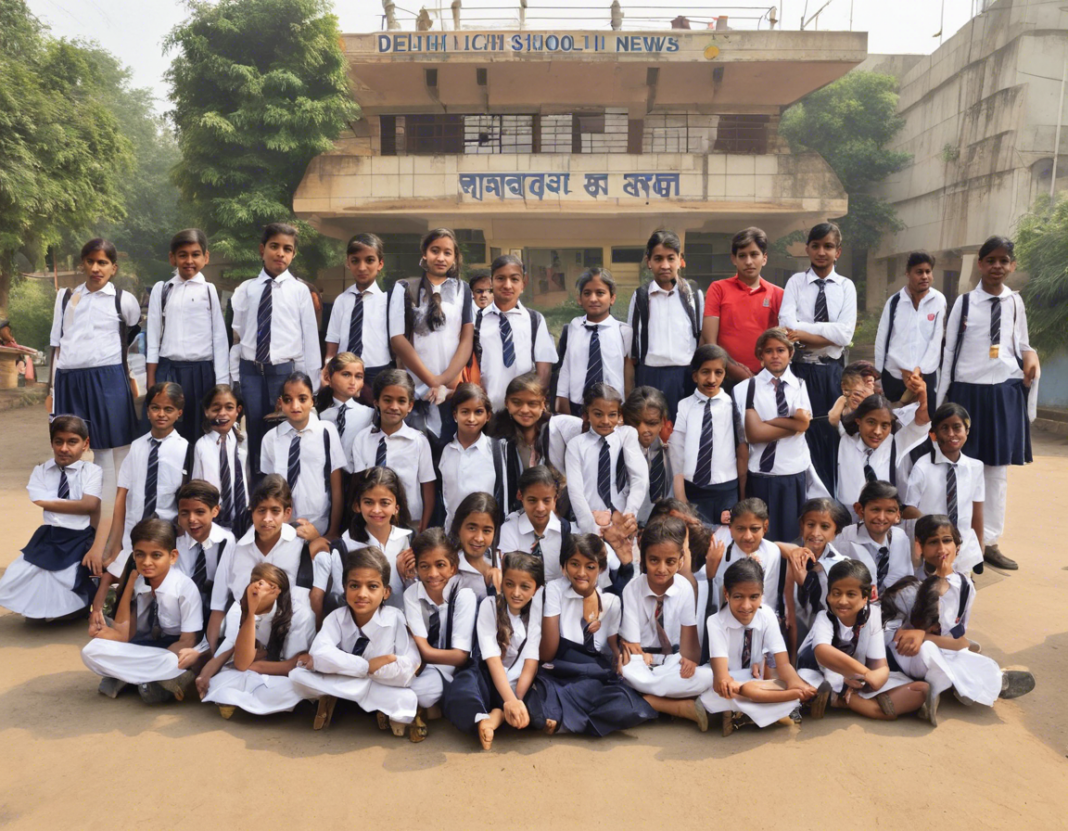With the ever-evolving landscape of education, staying updated with the latest changes and advancements is crucial for students, parents, teachers, and policymakers. The education system in Delhi has witnessed significant developments over the years, with a focus on enhancing the quality of education and providing equal opportunities for all. From policy reforms to innovative teaching methods, Delhi’s schools have been at the forefront of educational transformation. In this blog post, we will delve into the recent updates and news in the Delhi school education sector, highlighting key initiatives, challenges, and trends shaping the future of learning in the capital city.
Overview of Education System in Delhi
Delhi, the national capital territory of India, is home to a diverse education ecosystem comprising a mix of government, private, and international schools. The Delhi government has been actively working towards revamping the education system to ensure access to quality education for all children. With a strong emphasis on inclusive education and equitable opportunities, Delhi has made significant strides in improving learning outcomes and infrastructure in schools across the city.
Key Highlights:
-
Revamping Infrastructure: Delhi government has invested heavily in upgrading school infrastructure, including classrooms, laboratories, libraries, and sports facilities, to create a conducive learning environment for students.
-
Teacher Training Programs: Continuous professional development of teachers is a priority, with regular training programs and workshops being conducted to enhance teaching methodologies and skills.
-
Digital Initiatives: Integration of technology in education through digital classrooms, e-learning platforms, and educational apps to make learning more interactive and engaging.
-
Focus on Skill Development: Introduction of vocational courses and skill development programs to equip students with practical skills and enhance employability.
Recent Updates and Initiatives
Introduction of Happiness Curriculum:
One of the landmark initiatives in Delhi’s education system is the introduction of the Happiness Curriculum in schools. Launched in 2018, this unique curriculum focuses on holistic education, including mindfulness, critical thinking, problem-solving, empathy, and emotional well-being. The curriculum aims to nurture not only academic excellence but also emotional intelligence and mental health among students.
Entrepreneurship Programs for Students:
To foster entrepreneurial skills among students, Delhi schools have integrated entrepreneurship programs into the curriculum. Students are encouraged to think creatively, identify problems, and develop innovative solutions through project-based learning and hands-on activities. These initiatives aim to instill an entrepreneurial mindset from a young age and prepare students for the challenges of the future workforce.
Emphasis on Environmental Education:
With growing concerns over environmental sustainability and climate change, Delhi schools have incorporated environmental education across disciplines. Students learn about environmental conservation, renewable energy, waste management, and sustainable practices to raise awareness and instill a sense of responsibility towards the environment.
Inclusive Education for Differently-abled Students:
Delhi government has taken proactive steps to promote inclusive education by ensuring equal opportunities for differently-abled students. Special educators, assistive technologies, and accessible infrastructure have been introduced in schools to cater to the diverse learning needs of students with disabilities. The aim is to create an inclusive and supportive learning environment where every child can thrive.
Challenges and Way Forward
While Delhi’s education system has made significant progress, it faces several challenges that need to be addressed to ensure quality education for all. Some of the key challenges include:
-
Infrastructure Gaps: Disparities in infrastructure and resources among schools, especially in rural and underprivileged areas, need to be bridged to provide equal learning opportunities.
-
Teacher Shortage: Ensuring an adequate number of qualified and skilled teachers in schools to maintain a healthy student-teacher ratio and improve the quality of education.
-
Equitable Access: Addressing disparities in access to education based on socio-economic factors, gender, and geographical location to ensure inclusive education for all children.
-
Curriculum Reforms: Regular evaluation and updates to the curriculum to align with evolving needs and industry requirements, focusing on holistic development and practical skills.
To overcome these challenges and further enhance the quality of education, continuous collaboration between the government, schools, educators, parents, and the community is essential. By leveraging technology, promoting innovative teaching methods, and prioritizing student well-being, Delhi can pave the way for a more inclusive and future-ready education system.
FAQs (Frequently Asked Questions)
1. What is the status of digital infrastructure in Delhi schools?
- Delhi schools have made significant strides in improving digital infrastructure, with many schools equipped with smart classrooms, e-learning resources, and access to educational apps for interactive learning.
2. How are Delhi schools promoting extracurricular activities?
- Delhi schools have a strong focus on extracurricular activities such as sports, arts, music, and cultural events to provide students with a well-rounded educational experience.
3. What measures are in place to ensure the safety and security of students in Delhi schools?
- Delhi schools have implemented strict safety protocols, including CCTV surveillance, security personnel, and awareness programs to ensure the safety and security of students on campus.
4. How does the Delhi government support the professional development of teachers?
- The Delhi government conducts regular teacher training programs, workshops, and seminars to enhance the skills and pedagogy of teachers, ensuring continuous professional development.
5. What initiatives are in place to address the learning needs of differently-abled students in Delhi schools?
- Delhi schools have special educators, assistive technologies, and inclusive learning practices to cater to the diverse learning needs of differently-abled students and promote an inclusive educational environment.
In conclusion, the education landscape in Delhi is witnessing transformative changes aimed at providing a holistic and inclusive learning experience for students. By addressing challenges, fostering innovation, and prioritizing student well-being, Delhi schools are paving the way for a brighter future for education in the capital city.
